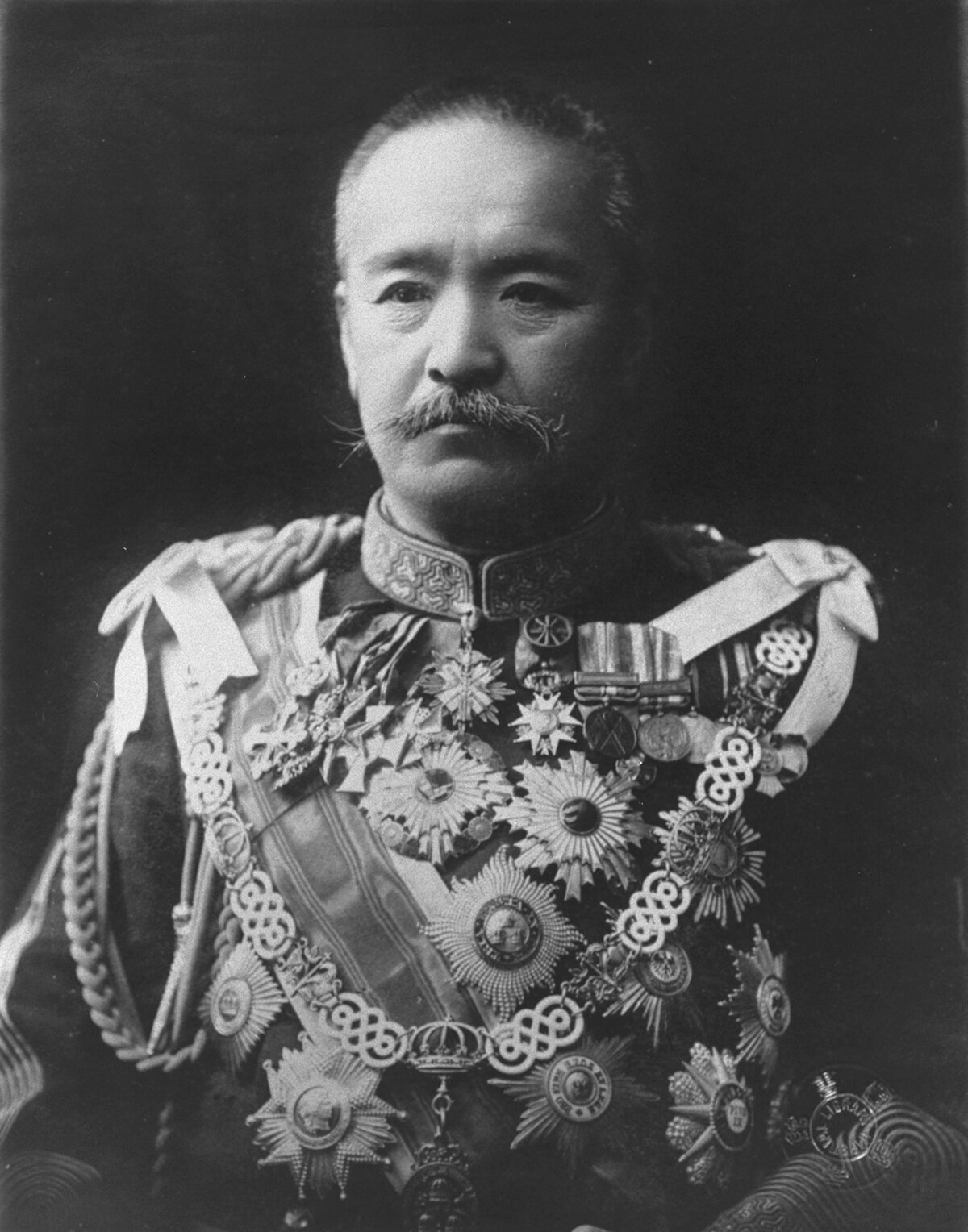
Pre-war negotiations
JapanThe Japanese statesman Itō Hirobumi started to negotiate with the Russians. He regarded Japan as too weak to evict the Russians militarily, so he proposed giving Russia control over Manchuria in exchange for Japanese control of northern Korea. Of the five Genrō (elder statesmen) who made up the Meiji oligarchy, Itō Hirobumi and Count Inoue Kaoru opposed the idea of war against Russia on financial grounds, while Katsura Tarō, Komura Jutarō and Field Marshal Yamagata Aritomo favored war. Meanwhile, Japan and Britain had signed the Anglo-Japanese Alliance in 1902 – the British seeking to restrict naval competition by keeping the Russian Pacific seaports of Vladivostok and Port Arthur from their full use. Japan's alliance with the British meant, in part, that if any nation allied itself with Russia during any war against Japan, then Britain would enter the war on Japan's side. Russia could no longer count on receiving help from either Germany or France without the danger of British involvement in the war. With such an alliance, Japan felt free to commence hostilities if necessary.
Despite previous assurances that Russia would completely withdraw from Manchuria the forces it had sent to crush the Boxer Rebellion by 8 April 1903, that day passed with no reduction in Russian forces in that region. On 28 July 1903 Kurino Shin'ichirō, the Japanese minister in Saint Petersburg, was instructed to present his country's view opposing Russia's consolidation plans in Manchuria. On 3 August 1903 the Japanese minister handed their proposal to serve as the basis for further negotiations. On 3 October 1903 the Russian minister to Japan, Roman Rosen, presented to the Japanese government the Russian counter proposal.
During the Russian–Japanese talks, the Japanese historian Hirono Yoshihiko noted, "once negotiations commenced between Japan and Russia, Russia scaled back its demands and claims regarding Korea bit by bit, making a series of concessions that Japan regarded as serious compromises on Russia's part". The war might not have broken out had not the issues of Korea and Manchuria become linked. The Korean and Manchurian issues had become linked as the Prime Minister of Japan, Katsura Tarō, decided if war did come, that Japan was more likely to have the support of the United States and Great Britain if the war could be presented as a struggle for free trade against the highly protectionist Russian empire, in which case, Manchuria, which was the larger market than Korea, was more likely to engage Anglo-American sympathies. Throughout the war, Japanese propaganda presented the recurring theme of Japan as a "civilized" power (that supported free trade and would implicitly allow foreign businesses into the resource-rich region of Manchuria) vs. Russia the "uncivilized" power (that was protectionist and wanted to keep the riches of Manchuria all to itself).
The 1890s and 1900s marked the height of the "Yellow Peril" propaganda by the German government, and the German Emperor Wilhelm II often wrote letters to his cousin Emperor Nicholas II of Russia, praising him as the "saviour of the white race" and urging Russia forward in Asia. A recurring theme of Wilhelm's letters to Nicholas was that "Holy Russia" had been "chosen" by God to save the "entire white race" from the "Yellow Peril", and that Russia was "entitled" to annex all of Korea, Manchuria, and northern China up to Beijing. Nicholas had been prepared to compromise with Japan, but after receiving a letter from Wilhelm attacking him as a coward for his willingness to compromise with the Japanese (who, Wilhelm never ceasing reminding Nicholas, represented the "Yellow Peril") for the sake of peace, became more obstinate.
When Nicholas replied that he still wanted peace. Nevertheless, Tokyo believed that Russia was not serious about seeking a peaceful solution to the dispute. On 21 December 1903, the Tarō cabinet voted to go to war against Russia. By 4 February 1904, no formal reply had been received from Saint Petersburg. On 6 February the Japanese minister to Russia, Kurino Shin'ichirō, was recalled, and Japan severed diplomatic relations with Russia.
